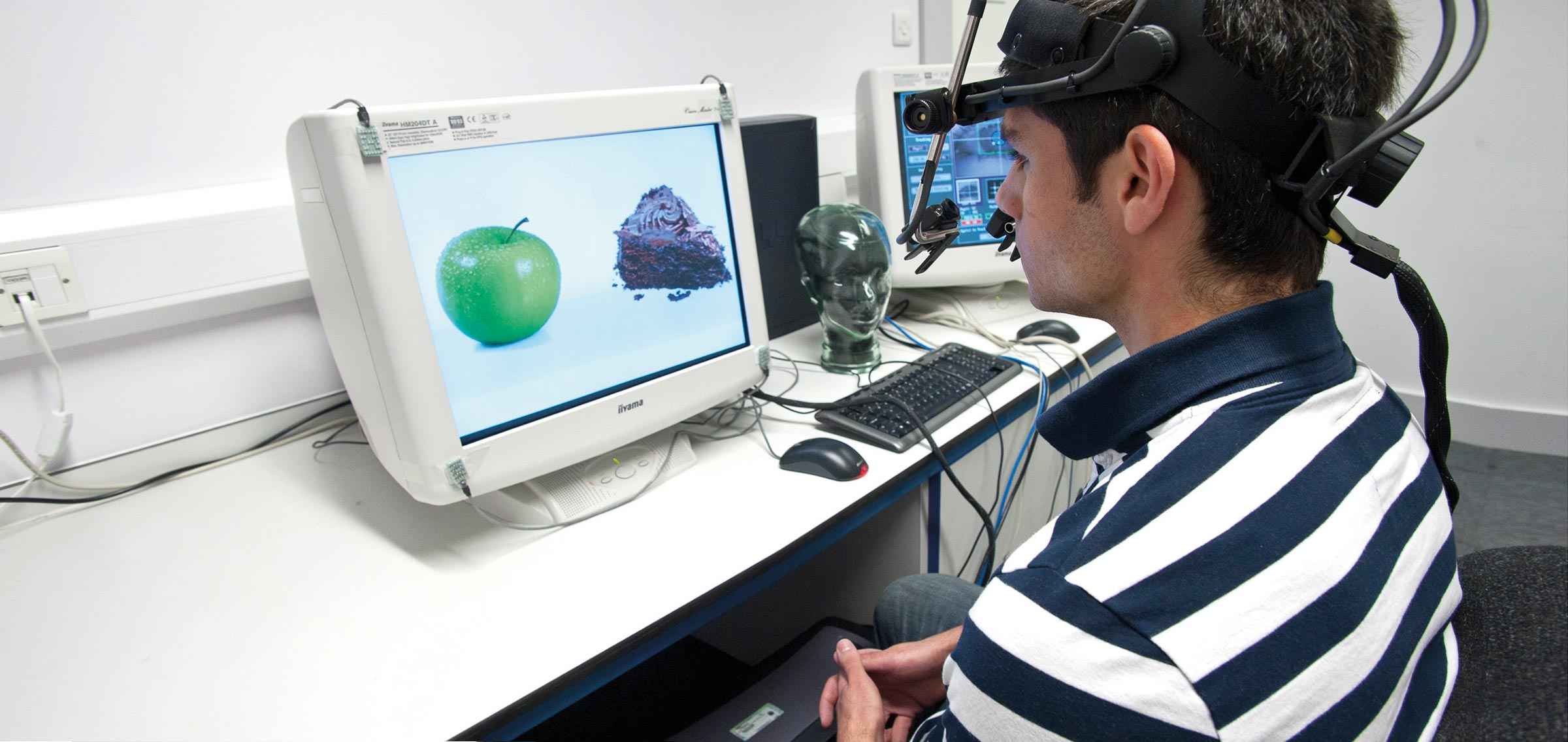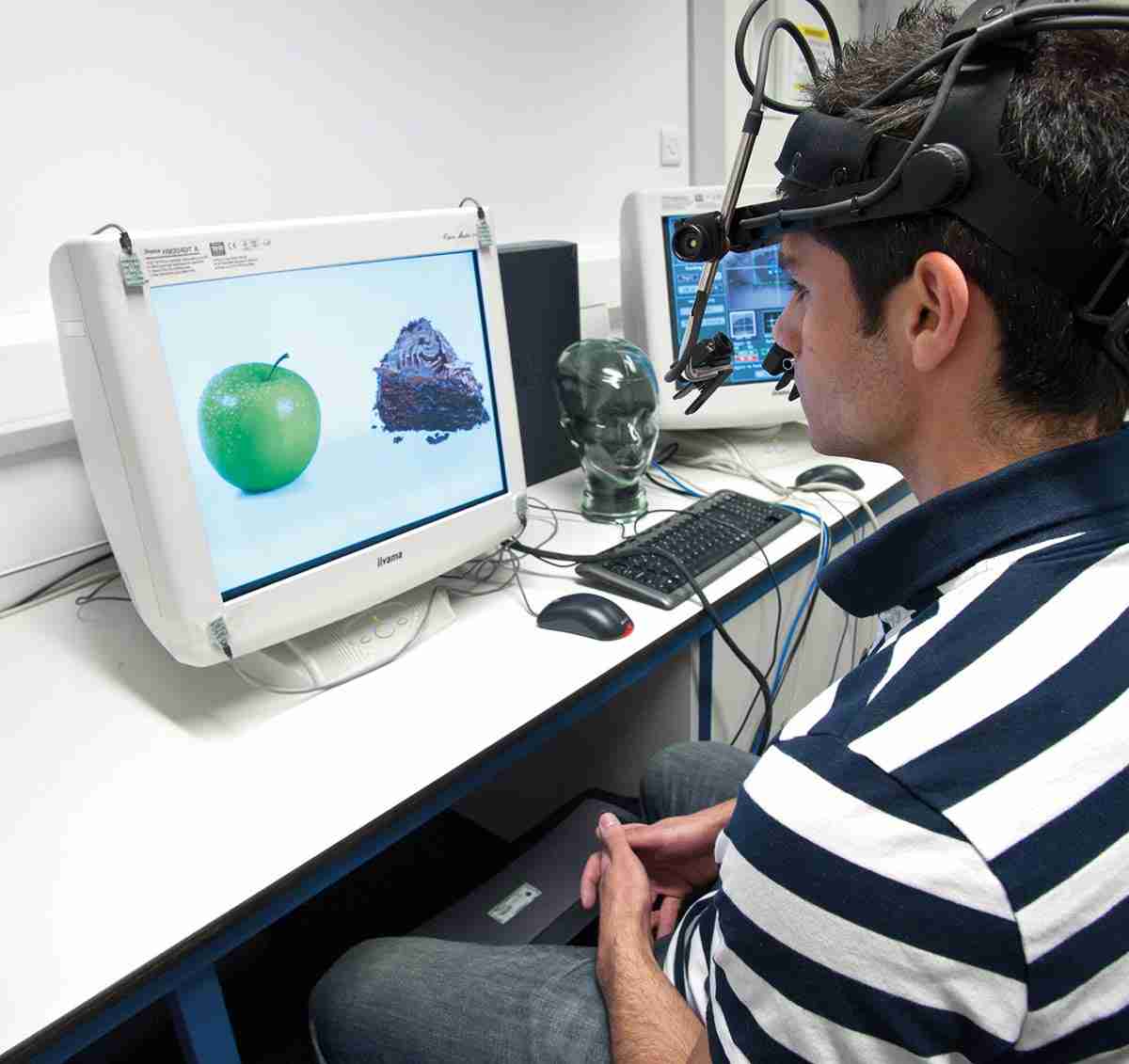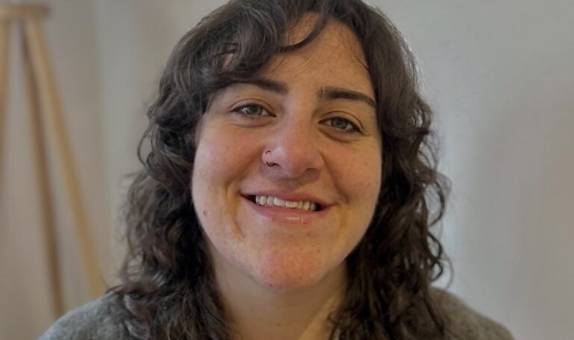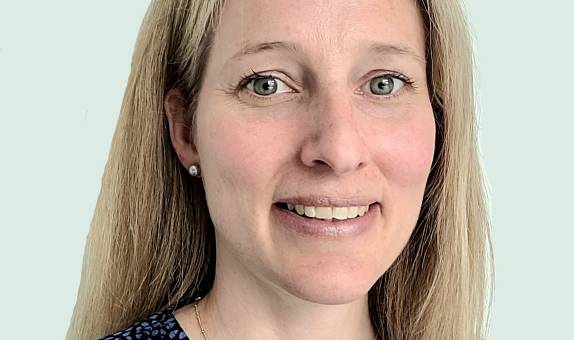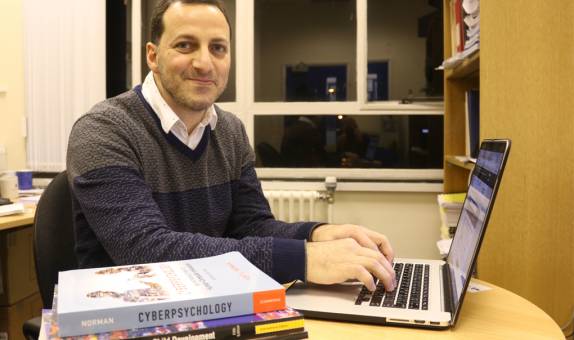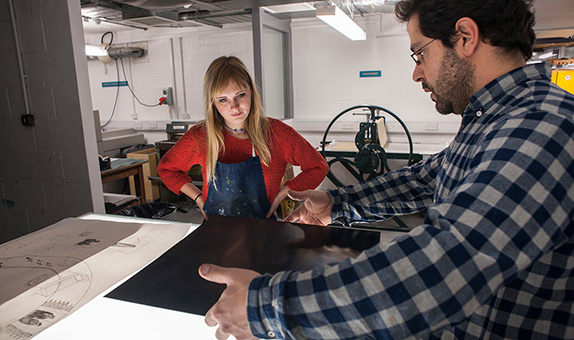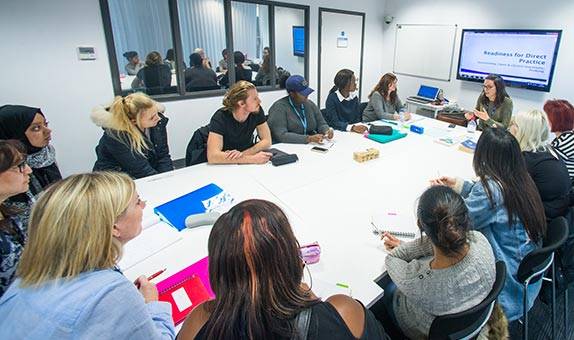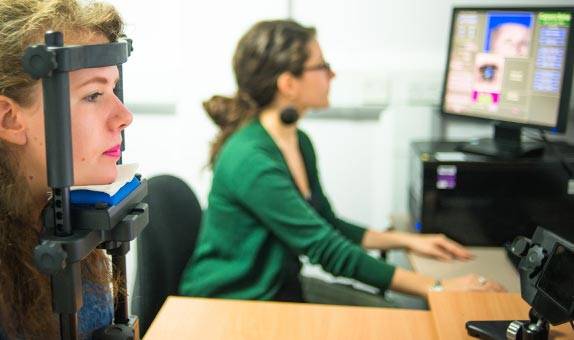Clinical Applications of Psychology MSc
Why choose this course?
This course will deepen your knowledge and you will gain skills relevant to clinical and counselling psychology and psychotherapy.
The course covers professional issues relevant to clinical practitioners, such as risk assessment, ethical dilemmas and diversity in clinical practice, as well as basic counselling and cognitive behaviour therapy skills.
Through a dissertation, you will research a chosen area in depth. Previous placement organisations include Kingston Hospital, Improving Access to Psychological Therapies (IAPT), adult mental health service, Place2Be, Paiwand, Pyramid and Rise. If you have already secured a placement before starting the course, we can offer research placements in our Psychology Department.
Please note: the course does not lead to a direct professional qualification as a clinical psychologist, or guarantee entry to doctoral-level training in clinical or counselling psychology.
| Mode | Duration | Start date |
|---|---|---|
| Full time | 1 year | September 2025 |
| Part time | 2 years | September 2025 |
| Main Location | Penrhyn Road |
Reasons to choose Kingston University
- You may gain practical experience through a work placement. The University has links with charities, community groups and hospitals.
- You will be taught by academics who are researchers and/or practitioners in clinical and health psychology.
- Visiting clinical and counselling psychologists will give lectures about their work in specialist clinical settings and populations.
Kingston's Department of Psychology
Placements
We will support you to find a placement through our links with charity organisations, local community groups or hospitals, all of which aim to promote positive mental health well being. Recently our students have undertaken placements at:
- Place2Be, a charity working with school children to improve their psychological well-being
- Paiwand, a charity supporting refugee children
- Rise, a social enterprise supporting people with mental health problems
- Kingston Hospital, on an initiative enhancing psychological care for patients with dementia
Our students have also gained placements working with clinical psychologists as an assistant clinical psychologist in organisations such as Central & North West London (CNWL) NHS Foundation Trust and the Kingston Early Intervention Service at Tolworth Hospital.
If you have already secured a clinical placement prior to the start of the course, we can offer research placements within Kingston University's Psychology Department.
Specialist careers support
You will take part in an Assessment Centre Experience, providing the opportunity to experience the pathway to employment with tailored feedback to help develop your employability skills for the world of graduate employment.
- Develop your understanding of the jobs market, including current trends and opportunities, different recruitment processes and how to identify relevant roles
- Receive personalised feedback reports to help you to improve and progress
- Access additional webinars on top tips, employer expectations and best practice

What you will study
You will gain in-depth knowledge of theories of psychopathology across the lifespan, and will study the biopsychosocial aspects of health and illness. You will explore the evidence base for psychological and behavioural change interventions in mental and physical health, and will cover advanced research methodology and statistics.
You will acquire basic counselling skills and knowledge of various therapeutic approaches, in particular cognitive behaviour therapy.
You will also consider professional issues and current debates in ethics and diversity relevant to practitioners and researchers in mental health, and will learn how to apply ethical principles in both your research and via real or hypothetical clinical case studies.
The dissertation will provide you with the opportunity for detailed and advanced study of a chosen area in clinical applications of psychology, which will enable further development of your practical research skills.
Full time - 1 year
Part time - 2 years
You will study four core, 30-credit modules plus a Psychology Dissertation worth 60 credits.
Core modules
Psychology Dissertation
60 credits
The dissertation project will be based on a critical literature review addressing complex and contradictory evidence. It will usually require carrying out an empirical study using one or more methodologies of data collection such as experiments, observation, psychometric testing, surveys and questionnaires, interviews and field studies. In all cases, the dissertation will involve the analysis of quantitative and/or qualitative data, as well as the presentation and critical evaluation of research findings. Through independent study and meetings with a project supervisor, the dissertation project will enable you to better understand the role of research methodologies, theoretical considerations and ethical issues in psychological research.
Research Design and Analysis
30 credits
The module provides an advanced coverage of the design and analysis of psychological research. Building on a revision of intermediate inferential statistics (e.g. ANOVA, factorial ANOVA, regression and multiple regression), the course moves quickly towards a consideration of more advanced and specialised quantitative methods (e.g. multivariate statistics, co-variance, structural equation modelling, factor analysis, meta-analysis and advanced regression techniques) and their applications. The module introduces principles of questionnaire design, evaluation and data analysis, along with advanced qualitative research methods. The laboratory workshops combine formal teaching with hands-on activities. The material provides an important foundation for the development and execution of the masters level research dissertation.
Psychopathology Across the Life Span
30 credits
This module focuses on the problems and disorders that have their onset in infancy, childhood, adolescence and adulthood. It provides an in-depth analysis of the factors relevant to diagnosis, assessment, aetiology, risk and protective factors, maintenance and treatment of psychological disorders. Key psychological disorders reviewed include regulatory behaviour problems, prematurity, autism and language difficulties, externalising (e.g. Bullying and Conduct Disorder) and internalising problems (e.g. anxiety, PTSD and mood disorders), eating disorders, neurological disorders, personality disorders, psychosis, and substance misuse disorders. Particular emphasis is also placed on discussing and evaluating the empirical evidence for different therapeutic approaches in the treatment of these disorders.
Clinical Applications of Psychology
30 credits
This module examines how an understanding of health and the treatment of illness can be advanced through knowledge and techniques derived from the behavioural sciences. It will then allow you the opportunity to acquire related practical experience via a supervised work activity.
In the first semester, the module will explore different approaches to the prevention and treatment of illness using behavioural methods, and it will identify various psychological factors that contribute to successful rehabilitation programmes. Examples of topics covered in the first part include cardiovascular disease, cancer, chronic fatigue syndrome, smoking and alcohol use, obesity, chronic pain, HIV/AIDS, and women's reproductive health.
In the second semester, you will spend a minimum of 50 hours in a placement of your choosing. It is expected that a professional from within the institution will oversee and determine the extent of your role within the placement setting (this will vary with each student). Examples of placement settings include: rehabilitation services, forensic settings, psychology departments, maternal services, cancer wards, charitable organisations concerned with the well-being of refugees. It is expected that students will arrange their own work placements, the suitability of which will be discussed and agreed upon with the module leader and/or the course director. In the absence of an external placement, you will be offered a work placement in the Department of Psychology.
Professional Practice
30 credits
This module will help you develop an awareness of the professional issues relevant to clinical and counselling psychology and psychotherapy in the UK. You will learn about the structure of these professions within the National Health Service, and the roles, ways of working and issues and challenges that face clinical practitioners. Themes such as ethics, diversity, and research in clinical settings will be discussed. The module will also provide an introduction to counselling and cognitive behaviour therapy (CBT) theory and skills. This will be done by reviewing the concept of counselling and the various counselling paradigms. The core conditions in the therapeutic process are examined and your acquisition of generic counselling skills (e.g. listening, attention giving, the effective use of questions, reflection, empathy) is facilitated during interactive workshops. The module then progresses to the CBT component in which fundamentals of this approach are presented. The development of knowledge of CBT skills such as identifying and modifying negative thoughts, promoting behavioural change, guided discovery, relaxation techniques, and mindfulness, are facilitated through the interactive lectures.
Part-time students will take three core, 30 credit, modules in the first year. In the second year you will take one 30 credit module plus a Psychology Dissertation, worth 60 credits.
Year 1
Professional Practice
30 credits
This module will help you develop an awareness of the professional issues relevant to clinical and counselling psychology and psychotherapy in the UK. You will learn about the structure of these professions within the National Health Service, and the roles, ways of working and issues and challenges that face clinical practitioners. Themes such as ethics, diversity, and research in clinical settings will be discussed. The module will also provide an introduction to counselling and cognitive behaviour therapy (CBT) theory and skills. This will be done by reviewing the concept of counselling and the various counselling paradigms. The core conditions in the therapeutic process are examined and your acquisition of generic counselling skills (e.g. listening, attention giving, the effective use of questions, reflection, empathy) is facilitated during interactive workshops. The module then progresses to the CBT component in which fundamentals of this approach are presented. The development of knowledge of CBT skills such as identifying and modifying negative thoughts, promoting behavioural change, guided discovery, relaxation techniques, and mindfulness, are facilitated through the interactive lectures.
Research Design and Analysis
30 credits
The module provides an advanced coverage of the design and analysis of psychological research. Building on a revision of intermediate inferential statistics (e.g. ANOVA, factorial ANOVA, regression and multiple regression), the course moves quickly towards a consideration of more advanced and specialised quantitative methods (e.g. multivariate statistics, co-variance, structural equation modelling, factor analysis, meta-analysis and advanced regression techniques) and their applications. The module introduces principles of questionnaire design, evaluation and data analysis, along with advanced qualitative research methods. The laboratory workshops combine formal teaching with hands-on activities. The material provides an important foundation for the development and execution of the masters level research dissertation.
Psychopathology Across the Life Span
30 credits
This module focuses on the problems and disorders that have their onset in infancy, childhood, adolescence and adulthood. It provides an in-depth analysis of the factors relevant to diagnosis, assessment, aetiology, risk and protective factors, maintenance and treatment of psychological disorders. Key psychological disorders reviewed include regulatory behaviour problems, prematurity, autism and language difficulties, externalising (e.g. Bullying and Conduct Disorder) and internalising problems (e.g. anxiety, PTSD and mood disorders), eating disorders, neurological disorders, personality disorders, psychosis, and substance misuse disorders. Particular emphasis is also placed on discussing and evaluating the empirical evidence for different therapeutic approaches in the treatment of these disorders.
Year 2
Psychology Dissertation
60 credits
The dissertation project will be based on a critical literature review addressing complex and contradictory evidence. It will usually require carrying out an empirical study using one or more methodologies of data collection such as experiments, observation, psychometric testing, surveys and questionnaires, interviews and field studies. In all cases, the dissertation will involve the analysis of quantitative and/or qualitative data, as well as the presentation and critical evaluation of research findings. Through independent study and meetings with a project supervisor, the dissertation project will enable you to better understand the role of research methodologies, theoretical considerations and ethical issues in psychological research.
Clinical Applications of Psychology
30 credits
This module examines how an understanding of health and the treatment of illness can be advanced through knowledge and techniques derived from the behavioural sciences. It will then allow you the opportunity to acquire related practical experience via a supervised work activity.
In the first semester, the module will explore different approaches to the prevention and treatment of illness using behavioural methods, and it will identify various psychological factors that contribute to successful rehabilitation programmes. Examples of topics covered in the first part include cardiovascular disease, cancer, chronic fatigue syndrome, smoking and alcohol use, obesity, chronic pain, HIV/AIDS, and women's reproductive health.
In the second semester, you will spend a minimum of 50 hours in a placement of your choosing. It is expected that a professional from within the institution will oversee and determine the extent of your role within the placement setting (this will vary with each student). Examples of placement settings include: rehabilitation services, forensic settings, psychology departments, maternal services, cancer wards, charitable organisations concerned with the well-being of refugees. It is expected that students will arrange their own work placements, the suitability of which will be discussed and agreed upon with the module leader and/or the course director. In the absence of an external placement, you will be offered a work placement in the Department of Psychology.
Kingston School of Law, Social and Behavioural Sciences
The School offers courses in economics, sociology, law, psychology and criminology. Our degrees are underpinned by a vibrant research culture and delivered by a blend of practitioners and academics who are dedicated to equipping you with the employability skills to thrive in your career.
You will have a wealth of opportunities outside the classroom to further your learning and gain hands-on experience in your chosen field.
After you graduate
The Clinical Applications of Psychology MSc helps to prepare you for further training and roles such as:
- Assistant psychologist
- IAPT training as a psychological well-being practitioner
- Doctoral level training in clinical or counselling psychology
- Research Assistant in Psychology
- Doctoral (PhD level) research training in psychology
What our students and alumni say
Entry requirements
Teaching and assessment
Who teaches this course?
You will be taught by an experienced teaching team whose expertise and knowledge are closely matched to the content of the modules on this course. The team includes senior academics and professional practitioners with industry experience. The following group of staff members are currently involved in the delivery of different elements of this course. This pool is subject to change at any time within the academic year.
Fees for this course
Additional costs
Depending on the programme of study, there may be extra costs not covered by tuition fees. Students will need to consider these costs when planning their studies. Tuition fees cover the cost of your teaching, assessment and operating University facilities such as the library, access to shared IT equipment and other support services. Accommodation and living costs are not included in our fees.
Where a course has additional expenses, we make every effort to highlight them. These may include optional field trips, materials (e.g. art, design, engineering), security checks such as DBS, uniforms, specialist clothing or professional memberships.
Course changes and regulations
The information on this page reflects the currently intended course structure and module details. To improve your student experience and the quality of your degree, we may review and change the material information of this course. Course changes explained.
Programme Specifications for the course are published ahead of each academic year.
Regulations governing this course can be found on our website.
